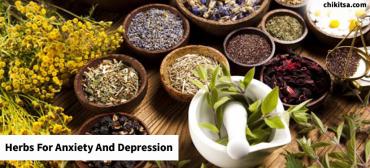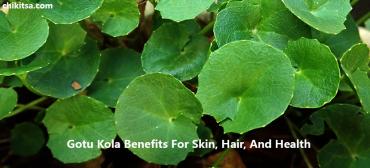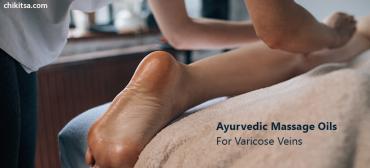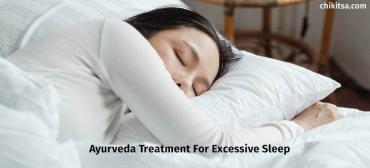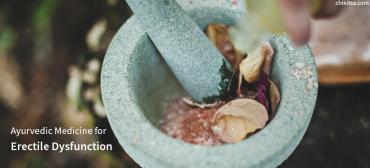Best Ayurvedic Treatment for Parkinson's Disease

There is something ominous and frightening about Parkinson's disease - the mere mention of the name makes you break out in a cold sweat. What is Parkinson's disease and what is there about it that makes it so scary and terrifying? This article aims at telling you all about Parkinson's disease and how Ayurveda helps you manage it effectively.
What is Parkinson's Disease?
Parkinson's disease belongs to a group of conditions called motor system disorders, which are the result of the loss of dopamine-producing brain cells. Parkinson's is a disease of the nervous system that mostly affects older people, which typically begins at the age of 50. It is a progressive disease that, in most cases, will continue to gradually get worse.
One of the worst things about the disease is that it can be very hard to cope with the disease and live with it, because it severely restricts mobility and as a result makes daily activities increasingly difficult. Many people who develop Parkinson's will require nursing care. As the cause of Parkinson's is not known, there is no cure for the disease, but there are effective treatments that can relieve the symptoms.
What are The Symptoms of Parkinson's?
The Typical Symptoms of Parkinson's Disease are:
- Slowed movement (Akinesia): Almost all the movements can only be performed slowly. People who are affected walk very slowly and hesitantly and can only take short steps. They find it hard to start moving, and taking the first step is particularly difficult. But, once they start moving, it is difficult for them to stop. With the progress of the disease, they stop swinging their arms when walking. Due to reduced activity in the facial muscles, the face becomes mask-like. Speech becomes quiet and swallowing also becomes harder. The early symptoms of Parkinson's are subtle and occur gradually, but in some people the disease progresses more quickly than in others. As the disease progresses, the shaking, or tremor, which affects the majority of people, begins to interfere with daily activities.
- Muscle stiffness: The muscles of the arms, legs, and neck can become stiff and tense. The muscles stiffen up and cannot be moved at all or with great difficulty. This excessive tensing of the muscles often causes aches and pains in the body.
- Tremors: Most people with Parkinson's suffer from tremors. These tremors decrease or hampers movement, and these tremors can be particularly seen in the hands.
- Other symptoms: Difficulty in swallowing, chewing, speaking, urinary problems, constipation, skin problems, and sleep disruptions.
What is the Ayurvedic Perception of Parkinson’s Disease?
According to Ayurveda, Parkinson's is caused by a Vata ailment that is chronic, with the symptoms becoming worse with the passage of time. The Ayurvedic texts describe the disease as Kampavata - where Kampa means tremor, and Vata means metabolic derangement. The existence of Parkinsons disease has been suggested in ancient Ayurvedic scripts dating more than 3000 years ago.
Ayurveda works on the principle of achieving balance among three main Doshas - Vata, Pitta, and Kapha. According to Ayurveda, Vata governs the air and body movement, and Parkinsons disease is caused by an imbalance of the Vata Dosha. In the course of time, the aggravated air damages the area of the brain that controls involuntary movements, giving rise to Parkinsons symptoms.
How is Parkinson's Diagnosed?
The diagnosis of Parkinson's disease is primarily based on signs and symptoms. Resting tremors or tremors which occur when the body is at rest, loss of facial expression or gait abnormalities, are strong indices of the disease. As only 70% of patients exhibit tremors, the other 30% of the cases are extremely difficult to diagnose. This condition may be, occasionally, confused with other causes of tremors, depression, and gait abnormalities.
What is The Treatment for Parkinson's?
Ayurveda has a more holistic approach towards curing Parkinson's disease, where the whole body is treated. The Ayurvedic approach believes that Parkinson's treatment can be done naturally that would help the body become healthier while getting rid of the disease. The Ayurvedic treatment is based on the fact that most of the problems arise due to imbalances in the tridosha, which include the Kapha, Vata, and the Pitta.
Parkinson's disease is mostly treated with medication after the symptoms get worse. The lack of dopamine can often be helped through medicines. Though medications relieve symptoms, they do not slow the progress of the disease. Some of the Ayurvedic treatments for Parkinson's disease include massaging.
Parkinson's disease, which affects about 1% of the population over the age 65, is the fourth most common neurological degenerative disorder found in the elderly and is known in Ayurveda as "Kampa Vata".
As mentioned earlier, no complete cure for Parkinsons disease is available. Ayurvedic medicine has a few medicines that can help in controlling the symptoms to a great extent, with a minimum of side effects. Several medications containing Kapikachu were suggested for the treatment of patients with Parkinson's disease. Levodopa is the general major drug used in treating Parkinsons disease, and Kapikachu has levodopa as the active compound. Herbal medicines containing levodopa, monoamine oxidase inhibitors, and anti-cholinergics were traditionally used in the treatment of Parkinsons disease in India. Studies have shown that the Ayurvedic treatment was effective in curing Parkinson's disease and caused only minor side effects.
Although there is no definite cure for Parkinsons disease, there are several medications that offer substantial relief from the symptoms of Parkinson's disease.
- Garlic is an excellent antioxidant that helps control oxidative damage to neurons. Garlic extract contains several organosulfur compounds that are vital and beneficial in balancing the Vata components. Mix 5gm garlic paste, along with 5gm gingely oil, and a pinch of black rock salt. If this is taken twice a day, it can effectively reduce symptoms of Parkinson's.
- Make a decoction of 20ml each of Tinospora cordifolia, Pluchea lanceolata, Zingiber officinale, Boerrhvia diffusa, which should be mixed with 10ml castor oil and taken twice a day. The disturbances of Vayu in the colo-rectal region can be treated with moist laxatives such as Triphala and Psyllium.
- Mucuna pruriens, when taken with Neuro-protective herbs, such as Ashwagandha and Haridra, can be used for treatment. 10gm of the Ayurvedic formulation made with Ashwagandha and Mucuna pruriens can be taken with milk twice a day for a few weeks. You can add herbs, such as Brahmi and Jatamansi, to the formulation or used separately. They help in controlling secondary symptoms of the disease such as depression.
What are The Side-Effects of Parkinson's?
Some of the patients who were treated with Kappikacchu (Mucuna Pruriens) have shown mild side effects, which include headache, dystonia (abnormal muscle tone), fatigue, tremors, syncope (fainting) and thirst. Other drugs, such as Amantadine, which improves symptoms in about 50% of the patients may cause edema, confusion, and liver reticularis. Side effects of other drugs include confusion, delirium and psychosis.
What is The Diet for Parkinson's?
Parkinson's patients should remember that they ought to control their diet in order to manage the disease better. Being healthy and being the right weight can help them cope with the disease and reduce the symptoms.
- It is extremely vital for people with Parkinson's to ensure their diet contains a lot of fiber. Some of the foods with high fiber include peas and beans, whole grain bread, vegetables, cereals, rice, and fresh fruits.
- Food that has a lot of cholesterol or saturated fat is definitely a big No No.
- Reduce the amount of milk and curds a person consumes, and sugar and salt intake should also be restricted.
- People with Parkinson's should consume a lot of water - at least 8 glasses per day.
- Avoid alcohol, as it might interfere with the medications.

